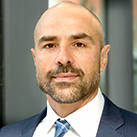Digital Health Forum 2018

18 Jun 2018
12:00 -20:00
GMT
By invitation only

The Shard
32 London Bridge Street
London
SE1 9SG
United Kingdom
Scaling digital health innovation through platforms
Encouraging health innovation is vital at a time of spiralling costs. There is therefore an ever-growing demand for healthcare to improve lives through innovation in technologies, products and business models.
The Digital Health Forum brings together senior industry practitioners, policy leaders and academics embedded in the digital health ecosystem to discuss digital innovation and data in healthcare, management, policy and clinical service delivery. Digital Health Forum events are co-hosted by Cambridge Digital Innovation and Warwick Business School.

Setting the scene
Health IT provides many opportunities for digitizing care and indeed many success stories abound as to how particular delivery units or health providers can innovate their service through technology. The wide availability of digital technology is playing a role in spawning an increasing pace of innovation taking place on top of digital platforms, defined as – “a set of digital services and content that enables value-creating interactions between external actors such as producers and consumers” (Constantinides, Henfridsson & Parker 2018). Across other industries, the sheer power of platforms such as Uber, Airbnb, Apple iOS and Google Play has transformed the scale and speed of innovation at a pace unimaginable just a few years ago.
The value of a digital health platform is realised through the development of new services that leverage its capabilities over time. Moreover, services need to be designed that both leverage the data but also fit with the workflow of patients who can interact with health providers, advisors and peers to share knowledge and interests in similar conditions (Barrett et al 2016; Valdez et al 2017). Such interactions are enabled by digital technologies including wearables, self-tracking devices and smartphone applications, all of which can provide renewed opportunities to scale up digital health services. In addition to the opportunities digital platforms may enable, there are also a range of challenges which may thwart the effective scaling of early successful pilots at the Hospital Trust level in an industry which remains conservative, heavily regulated, with established traditional business models. How a health innovation can thrive within a context needs to explicitly recognise how procurement and commissioning can support innovation, and that recognises the wider context of organisational, cultural and behavioural issues in the health system.
References
Barrett, M., Oborn, E., and Orlikowski, W. (2016). “Creating Value in Online Communities: The Sociomaterial Configuring of Strategy, Platform, and Stakeholder Engagement.” Information Systems Research 27(4), 704–723
Constantinides, P., Henfridsson, O., and Parker, G. (2018). Platforms and Infrastructures in the Digital Age: Key Contributions and Research Directions. Information Systems Research, June issue, 2018.
Parker, G.G., Van Alstyne, M.W. and Choudary, S.P. (2016). Platform Revolution: How Networked Markets Are Transforming the Economy and How to Make Them Work for You. WW Norton & Company.
Valdez, R.S., Guterbock, T.M., Fitzgibbon, K., Williams, I.C., Wellbeloved-Stone, C.A., Bears, J.E. and Menefee, H.K. (2017). From loquacious to reticent: understanding patient health information communication to guide consumer health IT design. Journal of the American Medical Informatics Association, 24(4), pp.680-696.
Event organisers
Michael Barrett
Academic Director, Cambridge Digital Innovation
Michael is Professor of IS and Innovation Studies and Director of Research at Cambridge Judge Business School. He is also Distinguished Visiting Professor of Innovation at the Stockholm School of Economics. He has served as Head of the Organisation Theory & Information Systems group, Director (Associate Dean) of Programmes, and Director of the MPhil in Innovation, Strategy & Organisation programme. He is also a Distinguished Scholar, OCIS Division, Academy of Management. Professor Barrett is currently Co-Editor-in-Chief of the Information & Organization journal responsible for the RICK section. He has consulted with Oracle Canada where he won the Most Valuable Employee award. He continues to provide executive education for many organisations including Thomson Reuters, Statoil, Bank of China, China Mobile, BT, IBM, HP, PWC, Pfizer, Shell, and the World Health Organisation.




